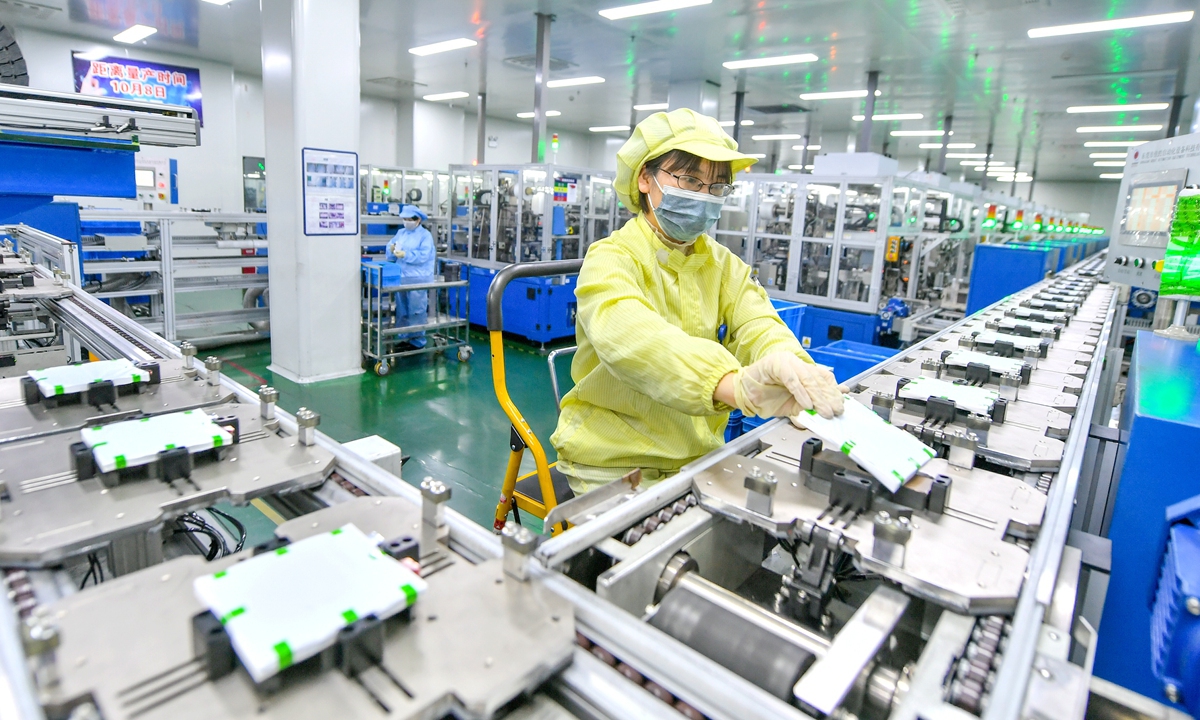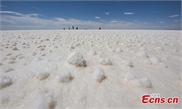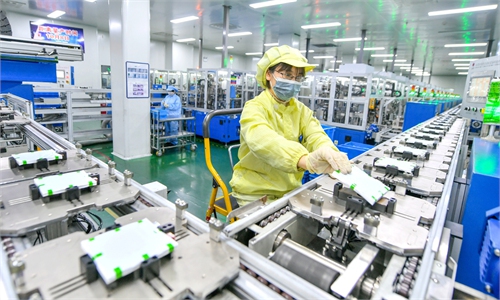
A worker at a lithium battery factory in Huzhou, East China's Zhejiang Province Photo: cnsphoto
Chinese upstream lithium firms have been expanding their overseas footprint this year, especially in the Lithium Triangle - the lithium-rich region in South America - to meet surging demand for the key resource for making electric vehicle (EV) batteries.
However, Chinese companies' bids to acquire overseas assets and projects still face great uncertainty given the race among countries for crucial raw materials, industry observers told the Global Times.
Zijin Mining Group, based in East China's Fujian Province, announced in a statement on Sunday that it will seek to acquire Canada's Neo Lithium Corp in an all-cash deal worth approximately 4.94 billion yuan ($768 million).
Chen Jinghe, chairman of Zijin, said that "Neo Lithium's 3Q lithium brine project in Catamarca, Argentina is one of the largest and highest-grade projects of its kind in the world… The 3Q project represents an important addition to Zijin's growing global asset mix, and it is a good choice for Zijin to enter the field of new-energy minerals."
This is Zijin's first tender offer for lithium resources after it formally proposed to enter the new-energy industry in July this year. The Chinese mining giant had been primarily engaged in the exploration, mining, smelting and sales of gold and other metallic minerals, excluding lithium.
The transaction is expected to be completed in the first half of 2022, but it still needs approval by regulators in China and Canada. There is uncertainty about whether the transaction can be successfully completed, Zijin said.
"Because China-Canada relations have not been fully restored, mutual distrust still exists. Lithium is a key mineral resource… Although Canada itself may be a little more objective, I don't know whether it will communicate with other parties with interests in the sector, like the US. Uncertainties do remain," Song Guoyou, deputy director of the Center for American Studies at Fudan University, told the Global Times on Monday.
In December, Canada rejected Shandong Gold Mining's bid for TMAC Resources, citing national security concerns.
"As global demand for new-energy vehicles grows, the upstream lithium resource has also become more crucial. However, as over 90 percent of the world's lithium resources are located abroad, it is an inevitable choice for Chinese companies to go overseas," an energy industry insider, who asked to remain anonymous, told the Global Times on Monday.
China is the world's largest consumer of lithium, accounting for 39 percent of global consumption as early as 2019. But most of the lithium has been imported. China's import dependence on lithium was nearly 80 percent in 2020, and its dependence on Australia was around 60 percent, data from Huaxi Securities showed.
According to the US Geological Survey, global lithium reserves increased to 21 million tons in 2020, while China's lithium reserves in the same period were 1.5 million tons, accounting for only 7.1 percent.
Chile and Australia are still the world's top two lithium resource holders, accounting for approximately 43.8 percent and 22.4 percent of global reserves, respectively.
"We can see that more Chinese firms are eyeing South America for the key resource, as China and Australia are still at loggerheads," said the industry insider.
As more EVs will trigger growing demand for lithium, it is expected that more Chinese firms will increase investment in the Lithium Triangle, he noted.
By 2035, pure EVs are likely to become mainstream in the sales of new NEVs, while those used in public transportation will be exclusively electrified, according to a development plan for the NEV industry in 2021-2035 unveiled by the State Council, China's cabinet, in November 2020.
Global Times



